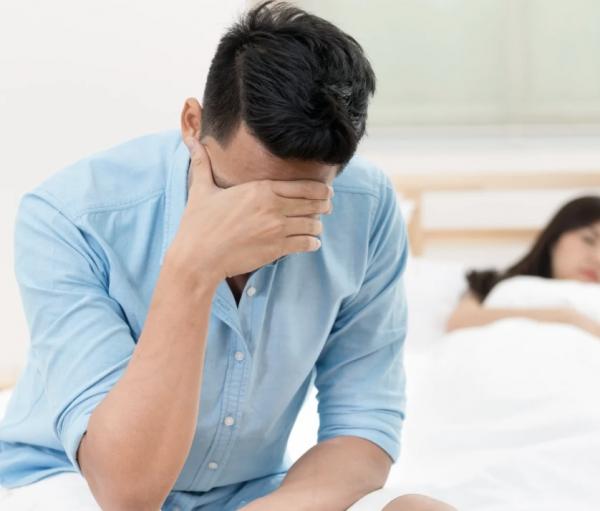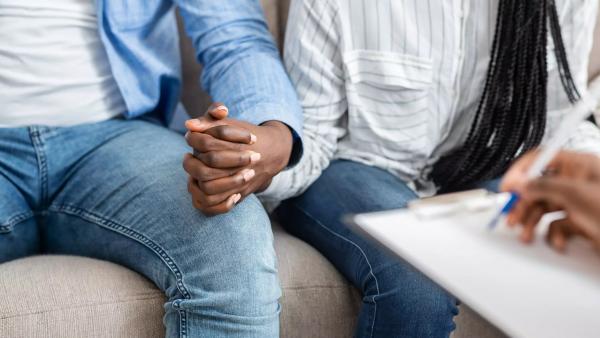All about sexual coldness

What is sexual coldness?
Sexual coldness, a concept that may seem vague and complicated at first glance, but is actually a more common phenomenon than we imagine. Decreased libido, lack of interest in sexual activities and not enjoying intimacy are just a few of the symptoms that fall under the cold umbrella of sexual temperament. But can this cold be cured? How to rekindle the extinguished flame of desire? And what are the reasons behind this reluctance?
Whether this loss of libido should be considered abnormal or merely a change from the normal state has long been debated. Looking at sexuality from different angles, there is a lot of literature available on loss of libido. The American Psychiatric Association’s Diagnostic and Statistical Manual of Mental Disorders (DSM-IV), which provides our working classification of psychosexual dysfunction, classifies it as hypoactive libido disorder and sex aversion disorder.
It should be noted that sexual dysfunction is a common problem, affecting 1 in 5 men – and even more women – at some point in their lives. However, an unexpected loss of libido—especially distressing when it lasts for a long time or reoccurs—can also indicate an underlying personal, medical, or lifestyle problem that can affect both parties. To be in an uncomfortable relationship.
In the exploratory journey of this article, we intend to take a road map and examine the different angles of sexual coldness with a scientific and compassionate look.
Why does sexual coldness occur?
Sexual coldness, like other issues related to mental and physical health, can have several reasons. Sometimes one factor alone ruins the work, and sometimes, the concurrence of several factors provides the basis for this reluctance. Let’s take a look at the most important of these reasons:
Physiological factors:
Hormonal changes caused by pregnancy, menopause, thyroid problems or even lack of certain vitamins can affect libido. In addition, chronic diseases such as diabetes and high blood pressure are factors that should not be underestimated.
Psychological factors:
Stress, depression, anxiety and even extreme fatigue can all cause a decrease in libido. Also, past bitter experiences in the field of emotional or sexual relationships sometimes lead to the creation of fear or mistrust that fuels sexual coldness.
Relationship problems:
Lack of emotional intimacy, lack of understanding and dialogue, as well as unresolved conflicts with the emotional partner, are among the most important factors that can lead to sexual coldness. In such a situation, a person may no longer see sex as a way to express affection, or even use it as a tool of punishment or empowerment.
Use of drugs and medicines:
Some anti-stress, anti-depressant or even pain medications have unpleasant side effects such as decreased libido. Also, the use of drugs and alcohol can also lead to sexual problems, including coldness.
age increasing:
Many people lose interest in sex as they age, mainly as a result of declining sex hormone levels, age-related health problems, or side effects from medications, especially older men who may have low testosterone levels. and it causes fatigue, depression and decreased libido. Talk to your GP if you are concerned about this. They will do a blood test to check your testosterone level and can take necessary measures if your level is low.
diseases:
– Gynecological disorders that cause pain during sex
– Urological disorders that cause pain during sex
– Abuse of alcohol and drugs
– Chronic stress and anxiety
– Endocrine disorders
– Neurological disorders
– Depressive mental disorders
– Fatigue
 Reasons for
Reasons for What medicines cause a cold?
Certain medications can sometimes decrease libido, such as:
– Medicines for high blood pressure, including diuretics
– antidepressants, including SSRI antidepressants
– Anticonvulsant drugs
– Medicines commonly used to treat psychosis (a mental condition in which a person cannot distinguish between reality and imagination), such as haloperidol, as well as many other conditions.
– Medicines such as cimetidine, finasteride and cyproterone that block the effects or reduce the production of testosterone.
If you are concerned that the medications you are taking have caused your libido to decrease, see your general practitioner. They can review your medications and, if necessary, change your prescription to something less likely to affect your libido.
Types of sexual coldness:
Sexual coldness is not a single concept. Experts have identified different types of coldness based on the severity and type of symptoms. Knowing the type of coldness is an important step in choosing the right treatment method:
Early sexual coldness:
People who have never experienced sexual desire or pleasure have primary coldness. This type of cold temper can have genetic or educational causes.
Acquired sexual apathy:
This type of coldness appears after a natural period of having sexual desire and pleasure. The causes and factors mentioned in the previous section can be the most common causes of acquired coldness.
Local sexual coldness:
In this type of cold temperament, a person simply has no desire or pleasure for some situations or sexual stimuli. For example, a person may be cold-tempered with their partner, but experience natural desire and pleasure in masturbating activities.
Dominant sexual coldness:
This type of cold temper is considered the most severe type of cold temper and in that person does not show any desire for any sexual activity or even sexual stimuli.

Treatment of sexual coldness
The good news is that sexual frigidity is not an eternal sentence, contrary to popular belief. By identifying the underlying cause of coldness and choosing the right treatment method, you can rekindle the silent flame of desire and enjoy emotional intimacy and sexual pleasure once again. Let’s take a look at some of the most important treatments for sexual apathy:
Drug treatments:
In cases where sexual apathy is caused by hormonal changes or the use of certain drugs, the doctor may prescribe hormone-regulating or hormone-replacing drugs. Of course, remember that the use of any medicine must be done under the supervision of a specialist doctor and taking into account the conditions and possible side effects.
Psychological treatments:
If the root of coldness is mental and psychological factors such as stress, depression or anxiety, psychological treatments such as cognitive behavioral therapy (CBT) and couple therapy can be very effective. These types of treatments help a person identify and correct negative thought and behavior patterns that affect libido.
Sex therapy:
Sex therapy is a specialized field of psychotherapy that specifically examines and treats sexual problems, including cold temper. By using different techniques, the sex therapist helps couples establish more effective sexual and emotional connections with each other and enjoy more intimacy and sexual pleasure.
Lifestyle modification:
Positive changes in lifestyle can have a significant effect on improving sexual temperament. Having enough sleep, regular exercise, healthy diet, stress management and avoiding the use of drugs and alcohol are all factors that can help strengthen libido and improve sexual performance.
Rebuilding intimacy:
Let’s not forget that sexual coldness is rarely an isolated phenomenon and is often rooted in the emotional relationships of couples. Therefore, improving emotional intimacy, honest and non-judgmental dialogue, and striving for mutual understanding are important pillars in the treatment of sexual frigidity. Creating a safe and respectful environment, where you can talk about your sexual needs and interests without fear of blame, can provide the necessary ground to establish intimacy and rekindle the flame of love.

Home remedies for sexual coldness
Spicy foods can increase libido and are considered one of the ways to treat cold mood, spices such as pepper, fennel, sage and parsley can provide spiciness to the diet.
Fresh fruits such as pistachios, raisins and figs increase libido.
Foods such as pumpkin seeds, chocolate, avocado, eggs and olive oil can increase libido.
Cinnamon, fenugreek and nutmeg can be mentioned among the hot plants that increase blood circulation in the abdomen and genital area.
How to use ginger to treat cold temper in women:
Ginger is one of the most aphrodisiac foods that can increase sexual desire.
Boil a teaspoon of fresh ginger in a cup of milk. Keep at boiling temperature for about 15 to 20 minutes. Add sugar to make it tasty and drink it once a day in the morning or evening to see its effect.
 Psychological
Psychological A final word about sexual temperament
Sexual coldness, although an unpleasant experience, should not be a reason for despair and failure of emotional relationships. With a proper understanding of this phenomenon, knowing the underlying causes and choosing the appropriate treatment method, this challenge can be overcome and the pleasure of emotional relationships and sexual intimacy can be enjoyed in all stages of life. Let’s not forget that deep and sincere communication is a treasure that no cold temper can extinguish.






